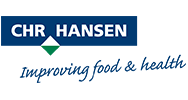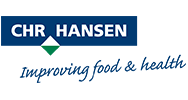
On the 25th of November, Poultry World will air its webinar on Antibiotic Reduction in poultry production.
Click here to register, completely for free
The reduction of antibiotic usage, is first and foremost a human health issue. Preventing bacteria from becoming resistant is essential to ensure that these key medicines stay available to save lives. As the livestock sector is seen as a reservoir of resistant bacteria, caused by antibiotic usage, there is both legislative and societal pressure on the sector to improve its ‘act’ . Producing chicken with less or no antibiotics is the target, at the same time it is essential to keep the birds healthy. This is a quest for many poultry professionals all around the globe. This webinar and our 3 expert speakers aim to give some practical insight in current trends and share their antibiotic free experience. The topic will be viewed from a veterinary angle and a nutritional angle, as speakers will address solutions how to tackle gut health without the use of antibiotics and with the use of alternatives.

Daniel Parker
Emeritus Director at Slate Hall Veterinary Practice
“Personal views on antibiotic reduction strategies for poultry meat producers”
- Experiences in GB poultry meat sector in reducing antibiotic use.
- Non competitive but collaborative approach
- Changing attitudes
- Key principals to healthy flocks

Guilherme Borchardt
Senior Technical Sales Manager for Poultry at Chr. Hansen

“The power of good bacteria to reduce the antibiotic use”
- Who and why limit antibiotics use?
- How antibiotics impact poultry health?
- How can producers get ready to remove antibiotics from their production?
- What are the birds telling us?

Dr. Alain RIGGI
Poultry at Phileo by Lesaffre

“Assess, plan, act for better results with less antibiotics”
Combining his field poultry veterinarian experience with collaborations with large poultry producers in different areas in the world, Dr Riggi highlights the importance of holistic approach to help poultry producers reduce antibiotic use. A holistic approach should be composed with 3 steps: identify the issues, find & set-up the right action plan including training and prevention measures, and finally evaluate the efficacy of the actions and make changes if necessary. Dr Riggi will share with you field success stories with various poultry production models from different areas in the world.
Partners




